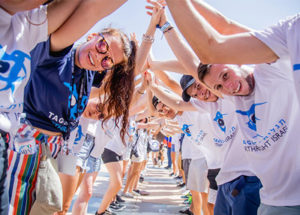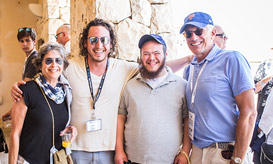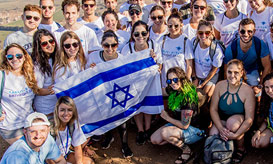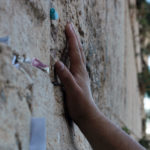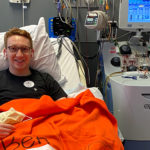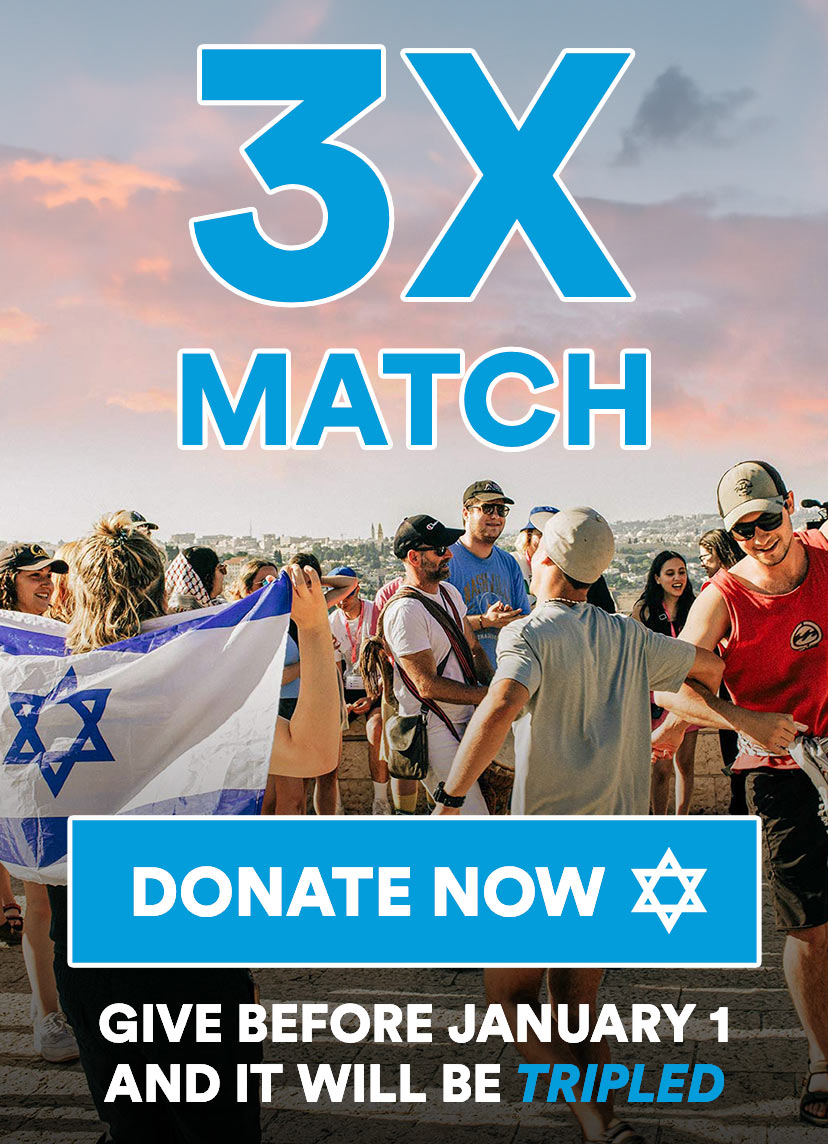Our daughter, Desiree, went on Birthright Israel last July from New York. Up until this trip…
I’d like to share with you how a Birthright Israel trip transformed my life. I grew up in Queens, raised by a single mother. We had Passover seders and lit candles on Hannukah but not much else. When I was ten years old, she told me I’d start going to Hebrew school at the local Reform synagogue.
I had a good time there for three years, goofing off with my friends, I vaguely remember my Bar Mitzvah, but as a teenager, I cared about playing music and baseball and didn’t have any connection to being Jewish.
Then in 2003, my sophomore year of college, I heard about Birthright Israel, a brand-new free trip to Israel, but I wasn’t sure I wanted to go. Would I get weird looks because I didn’t speak Hebrew? Rachel Corrie had just died, and then there was the bombing of the bar Mike’s Place. Did I want to get mixed up in all of this?
I remember we had just landed in Israel, got on the bus, and around five minutes in, the guide made an off-hand comment: “Out your right window, we’ve driving by the plains of David.”
I thought to myself, “Wait, what? What are the plains of David?” So I asked the guide, is this what I think it is? And he said yes, this is where David fought Goliath.
I didn’t know much about the Bible, but David was always the character I identified with as a fellow musician. And here was the spot, the actual spot, where he stood. Now who knows if he literally fought a giant with a slingshot, but just the idea that thousands of years ago, David was right here, saw this same meadow probably unchanged, and the rolling hills beyond totally blew my mind.
I suddenly felt this connection to being Jewish, that this is where I fit in to the generations who came before me, that this is what defined me more deeply than music or baseball or anything else ever could. Suddenly being Jewish made me part of something bigger than myself, and I knew that this was my place in the world.
The rest of Birthright Israel was fantastic. When I got back to campus, I not only became more involved in Jewish life, I became fascinated, borderline obsessed, with Birthright Israel itself as a program.
I chose Birthright Israel as the topic of my senior thesis, writing about it as a lens through which to examine American Jewish philanthropy and identity. I wrote about it philosophically, the nature of Zionism in the context of our voluntary Diaspora, and also made practical suggestions for improving the program. There was no one to advise me at Princeton, so was lucky Len Saxe and Jonathan Sarna agreed to be my advisors.
Fast forward 20 years. Birthright Israel made me who I am today, prioritizing a Jewish family, passing on this Jewish pride and sense of belonging to my kids, and devoting myself professionally to Jewish communal service, from AJC to lay leadership positions to my current role leading a Jewish family foundation.
Dylan Tatz is the President of the Newton and Rochelle Becker Charitable Trust (BCT), a family foundation supporting over 150 organizations. Mr. Tatz joined BCT in 2016, and in 2020 became the first individual outside the Becker family to serve as President. Prior to joining BCT, Dylan spent four years as Executive Director of zSharp, a Bay Area music education non-profit, spearheading its transformation from a traditional non-profit into a sustainable social enterprise. Before coming to zSharp, Dylan served as an Associate at McKinsey & Company, and founded and led Tatz Entertainment, a management consulting firm working with Silicon Valley startups. Dylan earned his M.B.A. at the Wharton School of Business and his A.B. from Princeton University, majoring in Religion.

